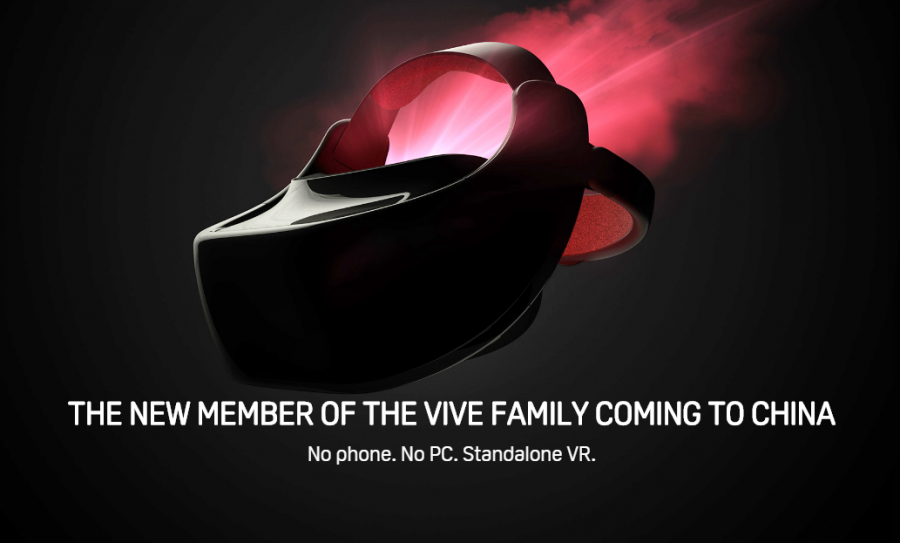On Wednesday, HTC announced it was developing a Vive Standalone VR headset in partnership with Qualcomm, who will supply the Snapdragon 835 chip powering the device. It will be a China exclusive at first and it will rely on Viveport as its application store.
Company representatives made the announcement at Chinajoy 2017 in Shanghai, where the upcoming headset was introduced by surprise but no additional details were revealed. The Vive Standalone will probably launch next year, but the firm did not announce a concrete release date.
HTC’s latest VR headset will be different from the one announced back in May in partnership with Google. That self-contained head-mounted display will work with Android’s Daydream and will introduce the tech giant’s WorldSense technology to deal with spatial awareness.
The Vive Standalone won’t get as broad options as the regular Vive
From the few details people could gather from HTC’s Chinajoy announcement, one of the most interesting ones was the fact that the manufacturer will side with its native Viveport platform instead of others that have grown in popularity in recent times.
SteamVR comes to mind when talking about the subject, as it serves as the leading platform for virtual reality experiences in PC-bound headsets. HTC’s standard Vive HMD is compatible with both services, but the Standalone will be limited to the games and apps available in Viveport.
Aside from that, the only notable specification we know about is the Snapdragon 835 chip it carries, and that will power the wireless headset as it processes interactive workloads.
A big question that remains is how HTC will solve the issue of spatial awareness. People have speculated that the standard Vive controllers will be compatible with the Standalone, but the sensor array inside the HMD needs to have the same capabilities as the setup for the PC version.
HTC will rival Facebook’s Oculus
HTC is not alone in the race to develop self-contained solutions for virtual reality enthusiasts, as Facebook introduced last year a concept for an all-in-one Oculus headset codenamed Santa Cruz last year.
That device is expected to hit the market next year, so it would be in direct competition with the Vive Standalone if the Taiwanese giant manages to make it to the launch date in time. Both would also contend, albeit not directly, with Microsoft’s Windows Mixed Reality headsets by third-party manufacturers.
However, the hardware category for Oculus and HTC is not entry-level as desired by Microsoft. Instead, they are aiming at a premium segment of the market that wants a seamless solution to experience virtual reality with as little hassle as possible.
These headsets will probably bring hefty price tags, comparable to the cost of their legacy brothers when they first launched. HTC, in particular, is pitching the Vive Standalone as lightweight, portable, and with a usage time of two hours minimum on a single charge.
Source: HTC



